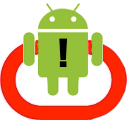Oracle changes its mind about damages in Android case

Both legal teams in Oracle's lawsuit against Google had recently seemed determined to end the case as efficiently as possible; however, things took a turn for the complicated during the latest proceedings. When the final statements in the patent portion of the suit were concluded, Oracle's team of lawyers went back to discuss the issue of damages once again, with Judge William Alsup surprising attendees by revealing that he had, in fact, spent time programming before.
After one member was dismissed from the jury for failing to reach the courtroom in time (reportedly her car had broken down), both parties moved on to present their closing statements for the patent phase of the lawsuit. The matter has now been handed over to the jury, now consisting of eleven members, for a decision.
With the patent portion of the lawsuit being concluded pending the jury's decision, the discussion went briefly back to matters of copyrights and associated damages. Oracle's counsel David Boies again insisted that his client was entitled to infringer's profits. Judge Alsup was sceptical, warning that Oracle could end up with nothing if it insisted on trying for infringer's profits instead of statutory damages. The maximum amount of money Oracle would be able to receive for statutory damages is $150,000 per infringement instead of possibly millions of dollars in Google's profits if the judge rules that APIs are copyrightable.
Judge Alsup then surprised the assembly by revealing that he was familiar with programming and that he had indeed written code in the past. He also stated that although he had never programmed in Java, he could personally have written the nine lines in the rangeCheck method which Google was found to have infringed on. He therefore concluded that the code was of rather trivial nature and told Boies: "The idea that somebody copied that in order to get to market faster when it would be just as fast to write it – it was an accident that it got in there. You're one of the best lawyers in America. How could you even make that argument?"
Faced with this situation, Boies seemed to reconsider and proposed to the court that if Alsup ruled that the 37 Java APIs in question were actually copyrightable, Oracle would proceed in trying for infringer's profits. If that was not the case, Boies said, Oracle would be content with statutory damages. This proposal could potentially halt the case or prolong it even further as Judge Alsup had already stated that he would not rule on copyrightability until the middle of next week at the earliest. Because of the last minute nature of the request, Judge Alsup postponed his decision to the next trial day.
(fab)
![Kernel Log: Coming in 3.10 (Part 3) [--] Infrastructure](/imgs/43/1/0/4/2/6/7/2/comingin310_4_kicker-4977194bfb0de0d7.png)

![Kernel Log: Coming in 3.10 (Part 3) [--] Infrastructure](/imgs/43/1/0/4/2/3/2/3/comingin310_3_kicker-151cd7b9e9660f05.png)
















